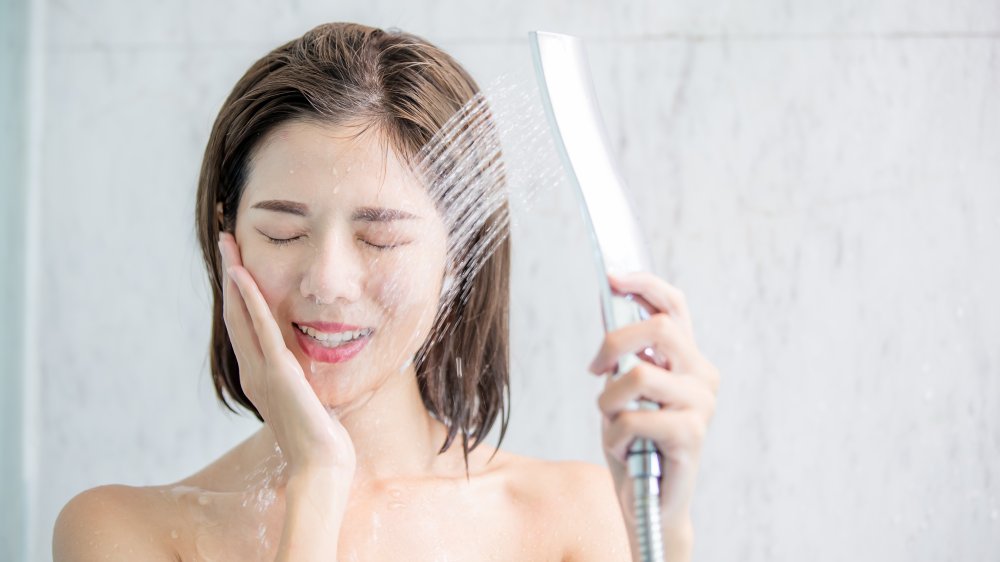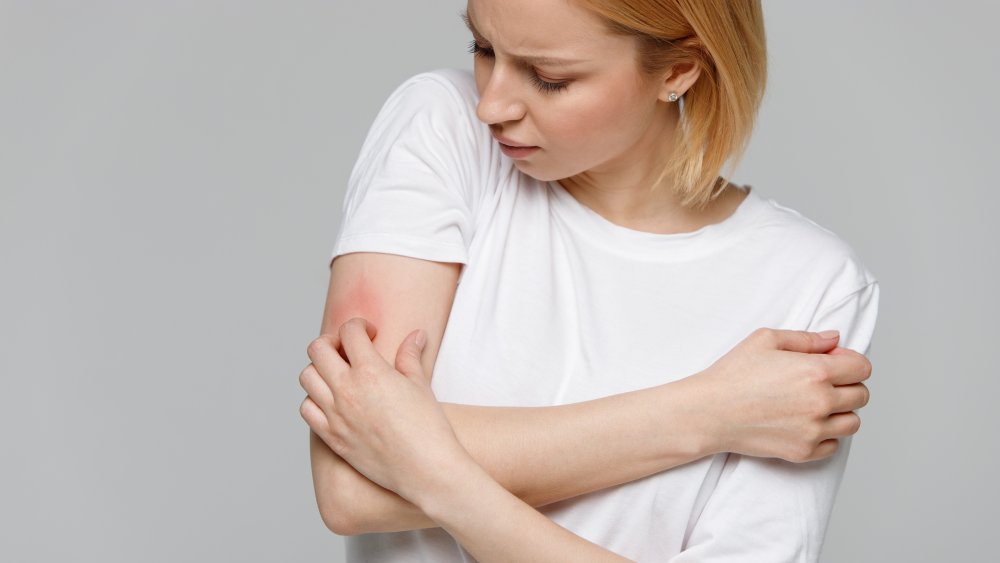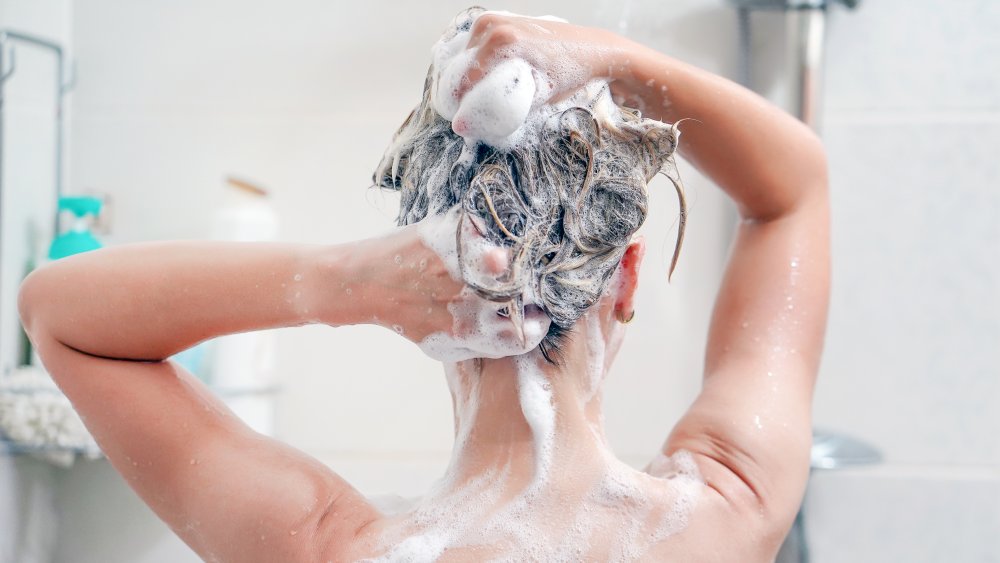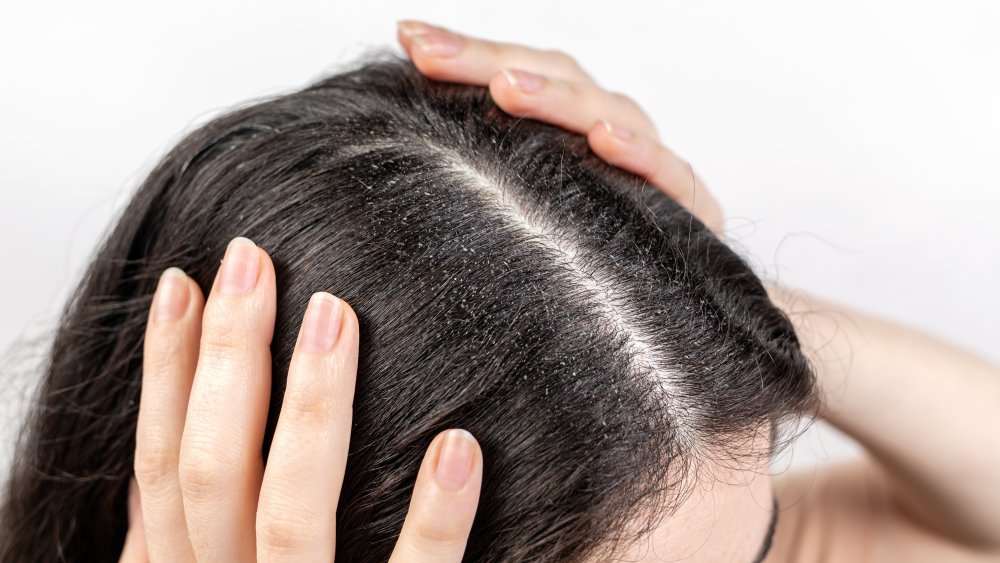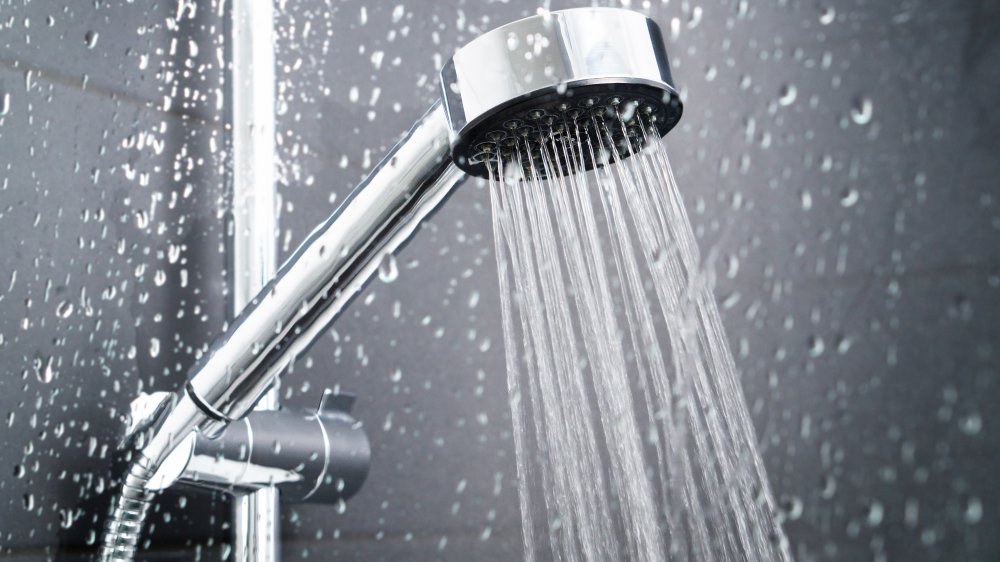Why You Shouldn't Be Showering Every Day
Are you obsessed with hopping in the shower first thing every morning, and you wouldn't dream of missing a day no matter how late you were? Would you finish your lengthy shower routine even if your house were on fire? Well, congrats, you win the good hygiene badge, but it might surprise you to know you're really not doing your skin any favors.
While many have the "cleanliness is next to godliness" principle drilled into them as kids, ideas about what constitutes good hygiene vary from culture to culture. Plus, as Harvard Health Publishing points out, a lot of what we see as hygiene necessity is actually driven by advertising. If TV commercials are constantly drumming into us that we must wash every single day, we tend to assume it's a social obligation rather than realizing it's just a way for them to make a profit off selling a relatively low-priced item.
Believe it or not, though, unless it's the middle of summer or you're involved in some serious sweat-breaking activity on a daily basis, you can likely skip your shower for a day or two and no one will ever notice except your soap-and-shampoo supplier.
Too much showering is bad for your skin
Harvard Health Publishing points out the fact that too-frequent washing, particularly with antibacterial soap, can upset the skin's microorganism balance. While having tiny little microorganisms living on our skin may sound icky and make you want to go running for a bar of soap, our immune systems actually need normal microorganisms and even a little bit of dirt in order to create protective antibodies and boost our immune system.
Many pediatricians are now aware of this fact and recommend against bathing kids every day, and adults, too, could benefit from skipping a few showers. Robert H. Shmerling, M.D., Harvard Health Publishing's senior faculty editor, says that bathing (or showering) frequently over the course of your lifetime may be detrimental to your immune system. He also notes that many soaps and shampoos contain additives that can provoke allergic reactions. One very common additive, the surfactant sodium lauryl sulfate, is found in most soaps and shampoos despite the fact that Get the Gloss says it's a known irritant.
All that soap and shampoo is too drying
Hot water pulls the skin's natural oils out and rinses them away, something that doesn't make you cleaner but instead makes your skin less protected. If your skin gets too dry, it can crack and allow harmful bacteria to get in, something that could lead to skin infections and allergies and aggravate conditions like eczema and acne. Board-certified dermatologist David Lortscher tells Bustle that "healthy skin retains a layer of oil," so he suggests "showering a few times per week is enough for most people." Lortscher also cautions anyone suffering from skin inflammation to avoid hot showers altogether and stick to washing in cool or lukewarm water.
Daily shampoos are also no bueno, since hair as well as skin needs to retain a certain amount of its natural oils. Andrea L. Hayden, director of the International Association of Trichologists, says hair should only be washed twice per week, especially if it's fine or damaged. You can, if your hair is super-dry, still use conditioner on those days when you're not shampooing, but if your hair is looking greasy or flat instead of dry, you're better off using dry shampoo or powder. If you don't want to spend big bucks on one of these, Wellness Mama suggests using cornstarch or arrowroot. Bonus tip for brunettes: mix a little cocoa powder into your dry shampoo powder. Not only will it blend in better, but it will make your hair smell like a Hershey bar!
Washing too much can cause dandruff
Dr. Niket Sonpal, a New York internist and gastroenterologist who's also an adjunct professor at Touro College, offers up yet another surprising fact about shampooing too often: rather than preventing or curing scalp problems such as dandruff, it can actually cause them instead! He says that washing your hair every day can cause your scalp to develop dermatitis and fungal issues since your oil-free scalp will start to crack, flake, and itch. What's worse, he says, "If you then pick at those flakes or scrape at them, you can even end up damaging your hair follicles, which could lead to hair loss."
Sonpal says danger signs to look out for would include scalp flaking and yellowish or pinkish scabs forming as well as hair shedding. If you notice any of these, and/or feel your head itching, you might want to dial back on your shampoo schedule. He suggests washing hair no more often than every other day, but less often is good, too.
You're being a water waster
The Environmental Protection Agency shares the shocking fact that showering accounts for about 1.2 trillion gallons of water used in the U.S. every year, accounting for 17 percent of all residential water use. The average showerhead spews out 2.5 gallons per minute. If you're in the shower for 10 minutes, that's 25 gallons of water, gone. No big deal? Wrong. The United Nations points out something that is, or should be, truly frightening: water scarcity is a growing problem, and within five years they expect that fully two-thirds of the planet will be living under "water-stressed" conditions.
While the EPA suggests installing a low-flow shower-head and Zero Waste California suggests water-saving tips like turning off the shower while you lather or trying to shower in three minutes or less, there's another, even easier way to help save the planet while saving time, money, and the health of your skin and your scalp: just stop showering every single day!

